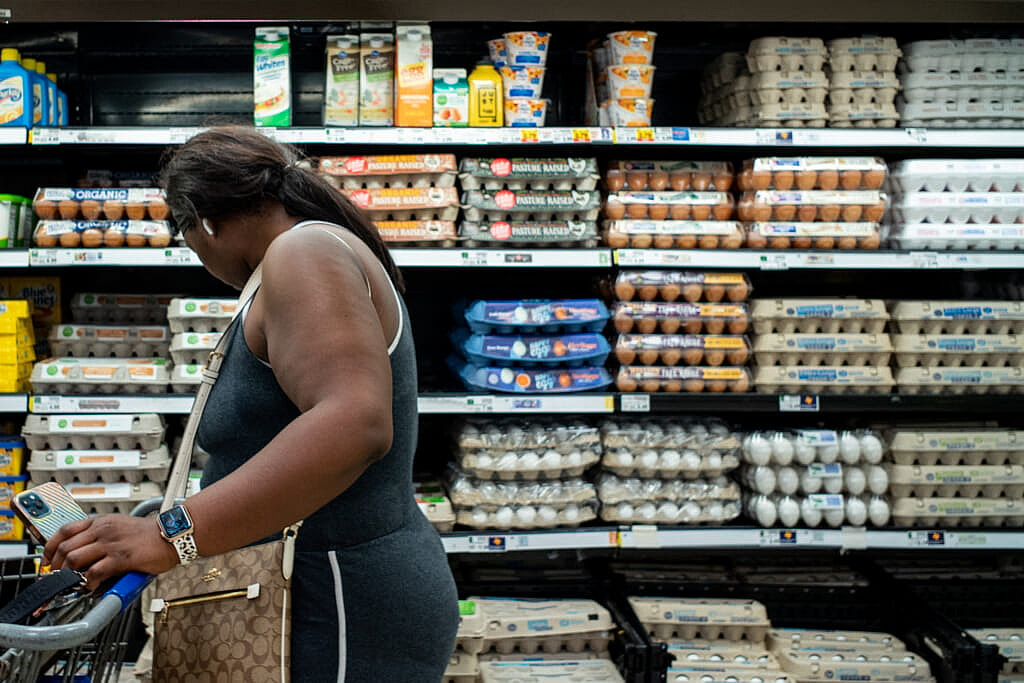We’ve all heard the jokes: millennials are poor, and we’re killing the economy. For the most part, the data has backed up the popular belief that millennials aren’t doing as well as our parents and grandparents. But there could be some hope on the financial horizon as members of this generation finally start to gain some ground.
What is a millennial, anyway?
If you were born between 1981 and 1996, you’re a millennial. The generation before us, Gen X, was born between 1965 and 1980. The baby boomers were born before that, between 1946 and 1964. And Gen Z was born from 1997 to 2012.
Right now, that means most millennials are in their 30s and early 40s. We’re looking for homeownership, and some of us are even looking to build families. But what’s been standing in our way?
Millennials watched two recessions and a war drag wealth away
The oldest millennials were graduating from high school in the late 1990s, but most of us graduated in the early aughts. And then, after Sept. 11, 2001, terrorist attacks on the United States, some of us saw our friends graduate into the military and fight in the War on Terror. For two decades, we lost friends; others came home forever changed.

Then, in 2007, the banking crisis that tanked the economy began. Young people who were low on the corporate ladder were hit hard, and a lot of millennials graduated into a job market that simply didn’t have any prospects. At that time, there was a 19% unemployment rate for people aged 16 to 24, as much as 10% higher than for other groups.
In 2020, the COVID-19 pandemic hit the economy hard. Millennials had spent the previous decade trying to make up for starting their careers on their back feet, only to have a deadly virus wipe out much of the wealth they had saved up.
Wages haven’t kept up with inflation
Despite the global crises that have hit our generation, millennials are trying to make it work. The problem, then, has been compounded by the fact that inflation is eating into our earnings. With the rise of the gig economy, too, many in this generation are working the same 40 hours for less money than previous generations.
A report from the advocacy group Young Invincibles that came out in 2017 showed millennials earning $10,000 less per year than older generations did at the same age. In 2019, the nonpartisan think tank New America confirmed those findings: Millennials made 20% less than other generations at the same stage of life.

Add in inflation, and not only are we making less money, but that money has less purchasing power. In 2021, when a study finally showed that we were making more than previous generations, we still only held 5% of the country’s wealth. That’s because “real wages,” adjusted for inflation, have actually been decreasing.
With the push to raise the minimum wage gaining popularity, this trend might end soon. Still, it’s hard to feel optimistic about our financial futures when the gains we make get erased.
We’re in so much debt
On top of the crises and the inflation, a lot of millennials are getting crushed by debt. In 2018, a study by the Federal Reserve found that millennials had more debt than baby boomers, but were pretty on par with Gen X, despite the high cost of continuing education. (Education is a huge factor in our debt, though; a lot of us graduated with tens of thousands of dollars worth of debt.)

And then, along came inflation.
As of this year, older millennials have seen debt jump 27% since 2019. Part of that was due to the inflation that the whole country saw as a result of the COVID-19 pandemic, but there’s also the fact that the Federal Reserve has been raising interest rates, making car payments and credit cards more expensive than before.
The future is starting to look up
All that being said, millennials are finally starting to feel a little better about our financial situations. As we got into the 2020s, lots of us were buying homes (at last); Black millennials in particular were a big part of that housing market boom. And we’re earning more than we were before, closing the gap from 34% behind other generations in a report for earnings through 2016 to 11% just before the pandemic hit.
We’re even starting families, which is an excellent indicator of economic optimism. While a lot of us delayed marriage and kids, about half of millennial women have become mothers.
At least Gen Z is learning from our mistakes
While millennials are finally getting our financial feet underneath us, we’re also excited about the future because we can see the generation after us learning from our mistakes. Three-quarters of Gen Z have said that college isn’t the only path to success, because they saw millennials buckle under the weight of ballooning college debt. And one-third are planning to or already have become business owners as they work to seize control of their financial futures.
But more importantly, Gen Z has learned the importance of finding their voice and of activism. They’ve had their own struggles as a generation, from growing up with active shooter drills and mass shootings to dealing with the inequality caused by the pandemic and its fallout just as they were coming into adulthood. One study reported that 70% of Gen Z is involved in some kind of cause.
And that’s a good thing. The future is changing, and Gen Z members want to make sure that the institutions that so often failed them (and us) will hear them roar.

With the future looking up, one thing’s for sure: millennials aren’t going to forget all of that economic anxiety any time soon. Hopefully, that means we’ll pass on what we learned and stand with the next generation as they try to claw out their own futures.

